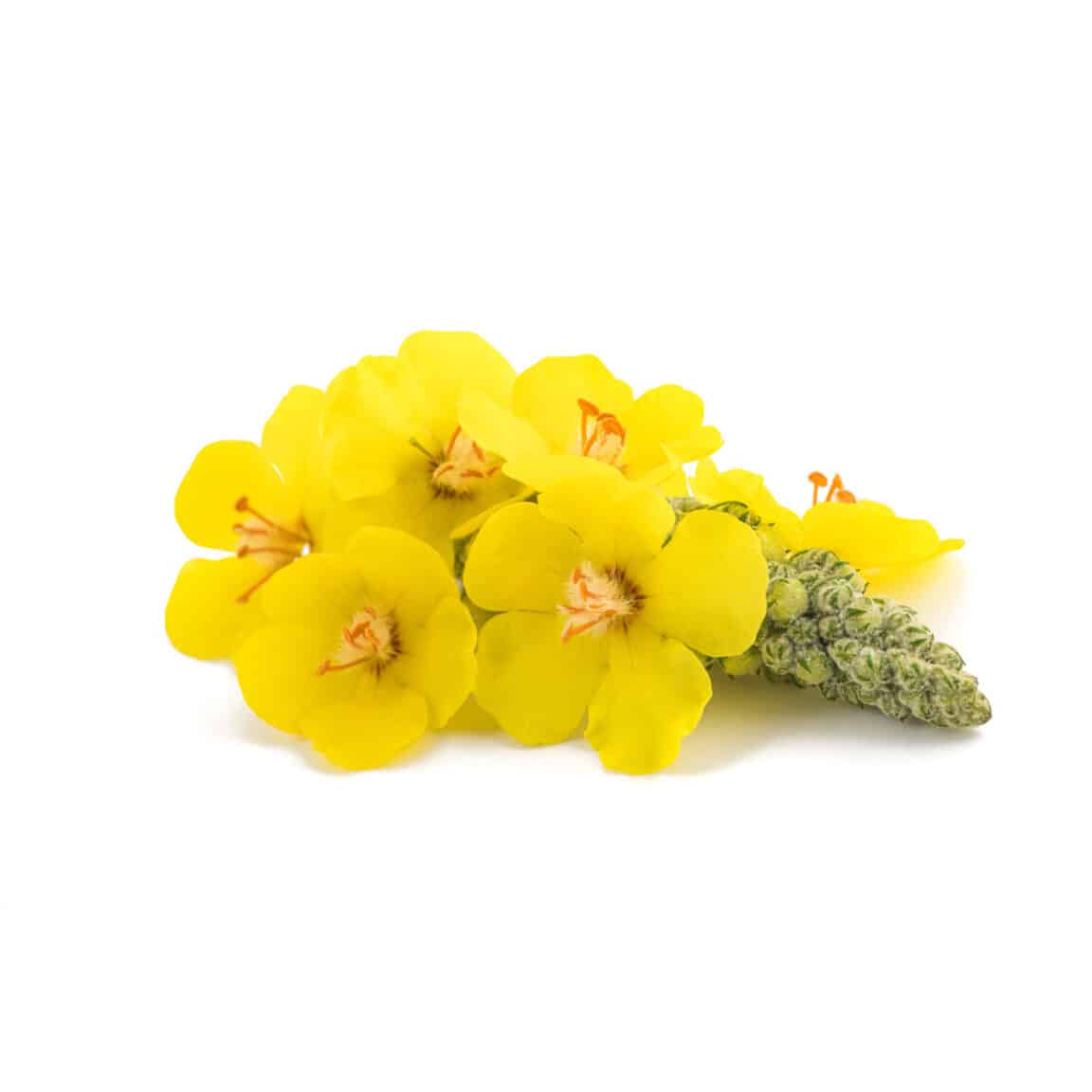
Scientific name: Verbascum thapsus
Origin: herbal
Family: Scrophulariaceae, Brownroot family
Category: Medicinal plant
In folk medicine, mullein is known for its many uses. It is used as a diuretic and in anti-rheumatic teas. In cases of hoarseness, mullein can help to soothe inflamed mucous membranes. Mullein is also used externally as a gargle or to promote wound healing.
VERBASCUM THAPSUS EXTRACT - Extract from the plant
VERBASCUM THAPSUS LEAF EXTRACT - Extract from the leaves
Mullein, an ancient and valuable medicinal plant, is rich in saponins, flavonoids and mucilage. These ingredients make it a well-tolerated remedy for coughs and hoarseness, as they achieve a unique effect that is soothing and anti-inflammatory. With aucubin as an additional active ingredient, mullein also has germ-inhibiting properties and can inhibit the growth of bacteria such as streptococci. Thus, the mild medicinal plant is not only gentle in its mode of action, but also anti-inflammatory.
The small-flowered mullein is found in a wide distribution area that includes almost all of Europe, Macaronesia, Algeria, Morocco, West and Central Asia, the Caucasus region, Siberia, China, India, Nepal, Bhutan and Pakistan. It thrives on sunny, stony and moderately dry sites such as roadsides, ruderal sites such as gravel pits and gravel plots, forest clearings as well as dams and banks. Due to its characteristic as a nitrification indicator, the plant can also serve as an indicator for the nitrogen content of the soil. In the Allgäu Alps, it occurs in the Tyrolean part between Elbigenalp and Bernhardseck at up to 1550 m above sea level. In Central Europe, it is typically part of the Atropetalia order.

© Blidor AG 2024